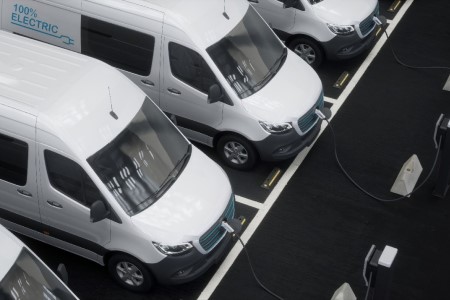Embracing sustainability in courier services
The increasing importance of sustainability in the courier and logistics industry
In recent years, the courier and logistics industry has faced growing pressure to reduce its environmental impact and adopt more sustainable practices. This shift is driven by several factors, including increased awareness of climate change, consumer demand for eco-friendly options, and regulatory pressures to lower carbon emissions. As a result, sustainability is no longer just a buzzword but a crucial element in the strategic planning and operation of courier and logistics businesses.

What constitutes sustainable and eco-friendly delivery services
Sustainable and eco-friendly delivery services are those that minimise negative impacts on the environment while maintaining efficiency and competitiveness. This involves reducing carbon emissions, optimising resource use, and implementing practices that promote environmental conservation. Eco-friendly delivery services also consider the lifecycle of delivery vehicles, packaging materials, and the waste generated during the delivery process.
Understanding eco-friendly delivery
1. What are key components of eco-friendly delivery practices
Eco-friendly delivery practices are those that significantly reduce environmental harm. Key components include the use of low-emission vehicles, optimising delivery routes to decrease fuel consumption, and employing renewable energy sources. Additionally, these practices encompass the use of sustainable packaging materials and waste reduction strategies.
2. What are examples of eco-friendly delivery methods
Several innovative delivery methods demonstrate eco-friendliness in action:
- Electric vehicles (EVs): Using EVs for deliveries cuts down on greenhouse gas emissions and reduces dependence on fossil fuels.
- Bicycle couriers: Especially in urban areas, bicycle couriers offer a zero-emission alternative to traditional delivery methods.
- Walking couriers: In densely populated cities, walking couriers can be an efficient and eco-friendly option for last-mile delivery.
- Drone delivery: Emerging drone delivery services promise a reduction in road traffic and associated emissions, though they are still in the early stages of deployment.
3. What are the benefits of adopting eco-friendly delivery practices for the environment and businesses
Eco-friendly delivery practices offer numerous benefits, including:
- Environmental impact: Reduced emissions contribute to cleaner air and a lower carbon footprint.
- Cost savings: Over time, eco-friendly practices can lead to significant cost savings, for instance, through reduced fuel consumption or lower maintenance costs for electric vehicles.
- Brand image: Businesses that adopt green practices often enjoy enhanced brand reputation and loyalty from environmentally conscious consumers.
- Compliance: Eco-friendly practices can help businesses stay ahead of regulatory requirements and avoid potential fines or sanctions.
Exploring sustainable service delivery
1. What is sustainable service delivery in the context of courier services
Sustainable service delivery in courier services refers to the comprehensive approach that balances environmental, economic, and social considerations. It's about creating a delivery model that is not only eco-friendly but also economically viable and socially responsible over the long term.
2. How sustainable service delivery goes beyond just eco-friendly practices to include economic and social aspects
While eco-friendly practices primarily focus on environmental aspects, sustainable service delivery also incorporates:
- Economic viability: Ensuring that sustainable practices are financially sustainable, contributing to the long-term success of the business.
- Social responsibility: Considering the social impact of delivery practices, including fair labour practices, community engagement, and contributing positively to the communities served.
3. What is the role of technology and innovation in sustainable service delivery
Technology and innovation play pivotal roles in enhancing sustainable service delivery:
- Route optimisation software: These tools help in planning the most efficient delivery routes, reducing travel time and fuel consumption.
- Packaging innovations: Advances in materials science have led to the development of recyclable, biodegradable, or reusable packaging options.
- Data analytics: Leveraging data can help businesses understand their environmental impact better, optimise operations, and make more informed decisions regarding sustainability.
- Electric and autonomous vehicle technology: The advancement in EVs and autonomous vehicles holds the promise of reducing emissions and improving the efficiency of delivery operations.
By understanding and implementing these sustainable practices, courier services can contribute significantly to environmental conservation while also enhancing their operational efficiency and market competitiveness.
Top 4 benefits of sustainable service delivery
Sustainable service delivery significantly reduces the environmental impact of courier services. By adopting eco-friendly practices, companies can lower their carbon footprints, decrease emissions, and reduce waste. This shift not only contributes to the health of our planet but also aligns with growing consumer expectations for environmentally responsible business practices.
2. Economic benefits: Cost savings and efficiency gains
Sustainability in courier services can lead to substantial economic benefits. Efficient route planning, reduced fuel consumption, and investment in eco-friendly vehicles can lower operational costs in the long run. Moreover, sustainable practices can enhance efficiency, leading to faster delivery times, reduced resource wastage, and improved overall service quality.
3. Social benefits: Improving community well-being and setting industry standards
Adopting sustainable practices in courier services fosters community well-being by reducing pollution and conserving natural resources. It also sets positive industry standards, encouraging other businesses to follow suit, which can lead to widespread social benefits. Companies that prioritise sustainability can also enhance their corporate social responsibility profile, contributing to a more sustainable future for all.
4. The impact of sustainable practices on brand reputation and customer loyalty
Sustainable service delivery can significantly boost a brand's reputation. Consumers are increasingly making purchasing decisions based on a company's environmental impact. Companies that demonstrate a commitment to sustainability can attract and retain customers, fostering loyalty and differentiating themselves in a competitive market.
Strategies for delivery drivers to enhance sustainability
1. Best practices for reducing emissions and fuel consumption
Delivery drivers can play a crucial role in enhancing sustainability by adopting best practices such as efficient route planning and regular vehicle maintenance. These practices not only reduce emissions and fuel consumption but also improve overall operational efficiency.
2. Adopting eco-friendly vehicles and transportation methods
Switching to eco-friendly vehicles, such as electric or hybrid models, can drastically reduce the environmental impact of delivery services. Utilising bicycles or electric scooters for short-distance deliveries is another sustainable option that can be both efficient and environmentally friendly.
3. Waste reduction strategies
Delivery drivers can contribute to waste reduction by minimising packaging and promoting the reuse of materials. Opting for recyclable or biodegradable packaging options can further reduce the environmental footprint of delivery services.
4. Engaging in continuous education and training on sustainability practices
Continuous education and training in sustainability practices can empower delivery drivers to make more informed decisions that promote environmental responsibility. This education can cover various aspects, from eco-driving techniques to waste management and sustainable packaging options.
How can businesses promote sustainability in courier services
1. Choosing and partnering with courier services that prioritise sustainability
Businesses can promote sustainability by selecting courier services that demonstrate a strong commitment to environmental responsibility. Partnering with such companies ensures that the entire supply chain aligns with the business's sustainability goals.
2. Implementing sustainable packaging and materials handling
Adopting sustainable packaging and materials handling practices can significantly reduce a business's environmental impact. This includes using recyclable materials, minimising packaging size, and reducing plastic use wherever possible.
3. Educating customers about the benefits of sustainable delivery options
Businesses can play a vital role in promoting sustainability by educating their customers about the benefits of eco-friendly delivery options. This education can encourage customers to choose slower, more sustainable shipping options or support carbon offset initiatives.
4. Setting and communicating clear sustainability goals and initiatives
Transparency in sustainability goals and initiatives is crucial for businesses. Clearly communicating these goals to customers, employees, and partners can foster a culture of sustainability and encourage collective action towards more sustainable courier services.
The role of consumers in promoting sustainable delivery
1. How consumers can influence the adoption of sustainable practices through their choices and preferences
Consumers wield significant power in shaping the market through their purchasing decisions. When consumers consistently choose sustainable delivery options, businesses are compelled to adapt, offering more eco-friendly solutions. This shift not only impacts individual companies but also sets a precedent for the industry, encouraging a broader move toward sustainability.
2. Encouraging consumers to opt for eco-friendly delivery options when available
Consumers can play a proactive role by selecting delivery options that minimise environmental impact. This could include choosing slower shipping options that consolidate shipments, thereby reducing carbon emissions, or selecting companies that use electric vehicles or bicycles for deliveries. By prioritising these options, consumers send a clear message to the market about their values and expectations.
3. Consumer participation in recycling and responsible disposal of packaging materials
The sustainability journey doesn't end at delivery; the disposal of packaging materials is equally crucial. Consumers can contribute by recycling packaging and advocating for minimal packaging practices. Participation in take-back programs or choosing products with biodegradable or recyclable packaging also helps close the loop in the product life cycle.
Future trends and innovations in sustainable courier services
1. Upcoming trends and potential advancements in sustainable logistics and delivery
The future of sustainable delivery looks promising, with advancements like autonomous electric delivery vehicles, drone deliveries, and AI-driven logistics planning. These innovations have the potential to drastically reduce the carbon footprint of the delivery process.
2. The role of technology and data in driving future sustainability efforts
Technology plays a pivotal role in optimising delivery routes, reducing idle time, and predicting the most efficient delivery methods. Big data and analytics can provide insights into consumer behaviour, helping companies better align their services with eco-conscious customers.
3. Exploring the potential for industry-wide collaborations and standards
Sustainable delivery requires a concerted effort across the industry. Collaborations between companies, governments, and non-profits can lead to the establishment of industry-wide standards and practices that promote sustainability at a larger scale.
Sustainability in courier services
This guide underscores the critical role of sustainable practices in the courier industry, highlighting how businesses, consumers, and technology can converge to foster a more eco-friendly delivery ecosystem.
Sustainability in courier services is not the responsibility of one entity alone. It requires the collective effort of all stakeholders, each playing a vital role in driving the shift towards more sustainable practices.
The journey towards sustainability is ongoing and ever-evolving. Continuous commitment to innovation and adaptation in delivery practices will not only benefit the environment but also enhance business resilience and customer loyalty in the long term.
